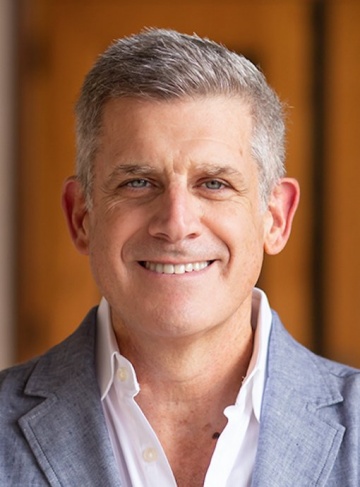Columbia College | Columbia University in the City of New York
This ’80s “Artsy Kid” is Now a Professor, Writer and Editor

What were you like when you arrived at Columbia?
I was an 18-year-old bridge-and-tunnel kid, born in Jersey City and raised in Teaneck, N.J., anxious and striving and intoxicated by the prospect of living in and somehow becoming New York City. I spent as much time that first year roaming around Manhattan as reading the Greeks in Penguin translation — though I aspired to be the intellectual kind of urban bohemian, and I worked hard on my papers on a noisy electric typewriter. This was in 1980–81 — many mayors and disasters ago — when the city was both more threatening and more welcoming to artsy kids with little money. All of those 21st-century novels longing for the New York City of that era, Rachel Kushner’s The Flamethrowers and Garth Risk Hallberg’s City on Fire and on and on? They’re sometimes wrong on the facts but right to be nostalgic.
What do you remember about your first-year living situation?
I remember that my assigned room — a “psycho single,” as we delicately called it — was so narrow and so barren that my mother, seeing it for the first time, was reminded of her immigrant family’s first apartments and rushed back to New Jersey to sew curtains. It was located in Eli White Hall, a St. Luke’s dormitory from which Columbia rented space for freshmen (we were all men, in fact, back in that sad day, sharing a single pay phone per floor). For my part, I hardly noticed either the narrowness or the curtains, excited as I was to live on my own without a curfew. On day two, I met a fellow first-year who became my best friend for decades, a pianist from Texas who introduced me to Reuben sandwiches, debate-style argument and how to do a load of laundry. Come spring, he and I and the rest of the Eli White people were forcibly resettled in suites of singles in the newly opened East Campus. It wasn’t until sophomore year, then, that we enjoyed the classic college experience of “the roommate.” (At the time, Columbia was the college you picked to evade classic college experiences of the non-classroom kind.)
What Core class or experience do you most remember, and why?
Three Core experiences turned out to be most memorable and most influential. The first was provided by Peter Pouncey GSAS’69, the classicist, advocate of coeducation, former dean of the College and eventual president of Amherst who taught my section of Contemporary Civilization. When not mesmerized by his colonial English accent, I learned from him the blend of historical and literary analysis that would be reintroduced to me under cover of the “New Historicism” in graduate school.
The second was provided by Lennard Davis ’70, GSAS’77, the literary theorist, historian of the English novel and pioneer of disability studies who taught my section of Lit Hum. Davis, then a young and even-younger-looking assistant professor, was one of the few Core faculty who posed explicit questions about the philosophical and political underpinnings of the institution of “the Great Books” — this while leading us artfully through the Odyssey and the rest of the journey.
Third, and finally, was the negative lesson the whole of the Core also provided, at least circa 1980–84: namely, the lesson that non-Western and Western minority texts were not to be found on its lists, so opportunities to study such work elsewhere should be seized. As a result, I enrolled in an introductory class on African-American literature taught by a visiting Amiri Baraka in fall 1983, the first significant step I took toward my scholarly specialty and lifetime commitment. I now regularly teach Baraka’s era-defining Black Arts poetry in my own classes.
Did you have a favorite spot on campus, and what did you like about it?
Two spots, together hosting a typical weeknight, were favorites: what we called the “Sylvia Plath Room,” a non-smoking room in the Hewitt cafeteria, where the would-be literary of Columbia met the would-be literary of Barnard over bad coffee and grilled-cheese sandwiches; and the Philosophy Library in Butler, where silence seemed natural and assigned paperback reading could be done in the company of two stories of leather-bound classics.
What, if anything, about your College experience would you do over?
I’d like to have wasted less time worrying about being hip, and more time unselfconsciously reading those leather-bound classics. I’d like to have studied abroad, while also magically spending more time in New York above and below 116th Street. Most importantly, given the state of my retirement account, I’d like to have bought a half-dozen of the Keith Haring and Jean-Michel Basquiat paintings even I could have afforded in the years between the Times Square Show and the 1983 Whitney Biennial. (Had I acquired these, however, I’d be a foundation and wouldn’t be writing this now.)
More “Take Five”
- 1 of 32
- ›

